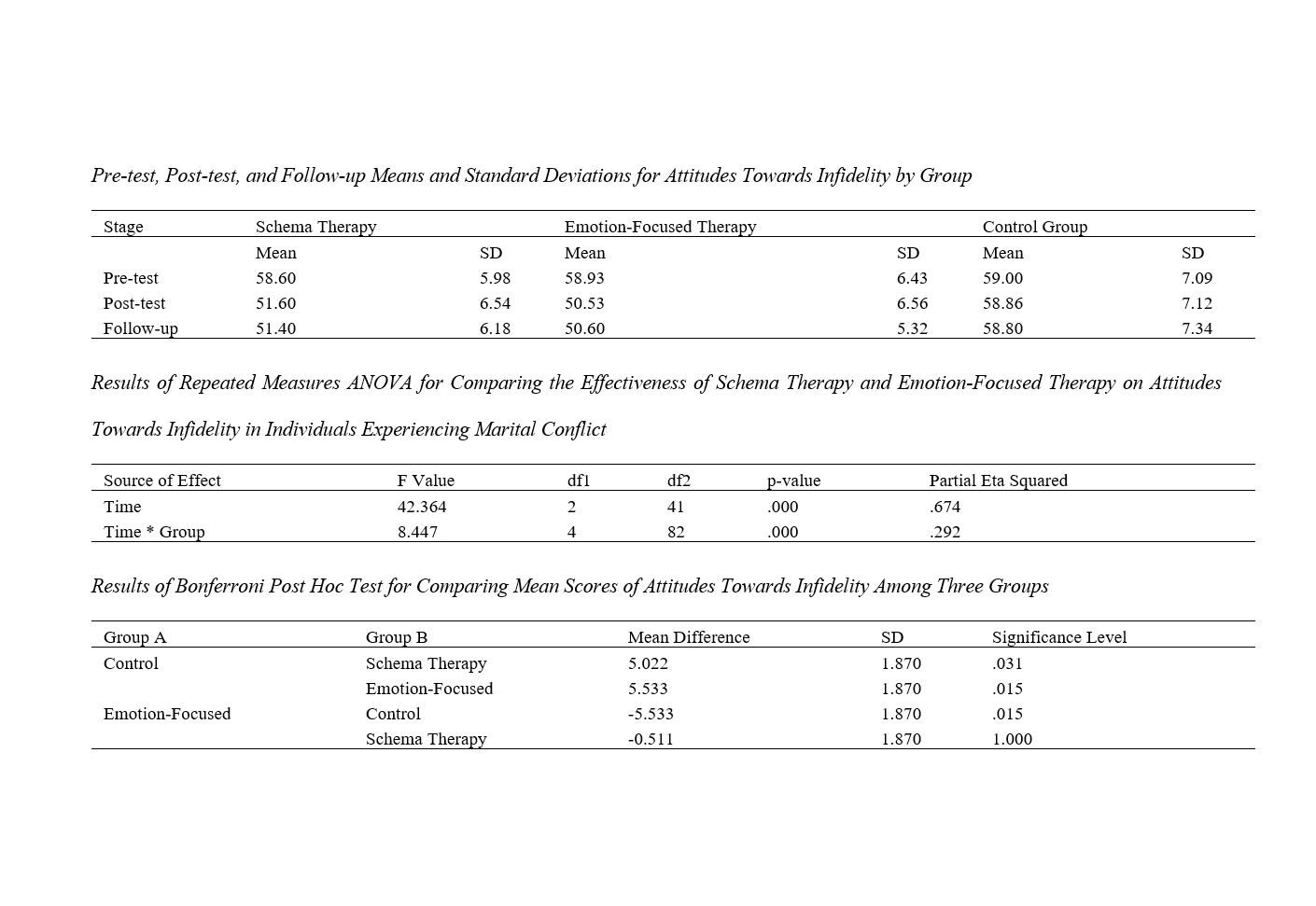Comparing the Effectiveness of Schema Therapy and Emotion-Focused Therapy on Attitudes Towards Infidelity Among Individuals Experiencing Marital Conflict
Keywords:
marital conflict, attitude towards marital infidelity, schema therapy, emotion focused therapyAbstract
Objective: Marital conflict is one of the serious problems in couples' interactions, which is considered as the cause of marital infidelity or divorce in many cases. This research was conducted with the aim of comparing the effectiveness of schema therapy and emotion focused therapy on the attitude towards marital infidelity of people with marital conflict.
Methods: The research method was quasi-experimental with a pre-test-post-test design with two experimental groups and a control group along with a follow-up test period. From the statistical population of women referring to the clinics of the 1st district of Tehran, 45 people were selected using the available method and replaced in three groups using a random method. Whatley's marital infidelity questionnaire (2006) was used. First, the pre-test of the attitude towards extrapolation was implemented for all three groups, then schema therapy (Yang, 2003) and emotion focused therapy (Greenberg, 2004) were implemented for the experimental groups, but no intervention was applied for the control group; Finally, the post-test and the follow-up test were performed for all three groups.
Findings: The results of the repeated measurement test showed that both schema therapy and emotion focused groups are effective in reducing attitudes towards marital infidelity (f=8.447 and p=0.001). Bonferroni's post hoc test showed that there is no significant difference in the effectiveness of the two schema therapy and emotion focused approaches.
Conclusion: To improve the attitude towards marital infidelity of people with marital conflict, it is suggested to use both schema therapy and emotion focused interventions.
Downloads

Downloads
Additional Files
Published
Issue
Section
License

This work is licensed under a Creative Commons Attribution-NonCommercial 4.0 International License.




















